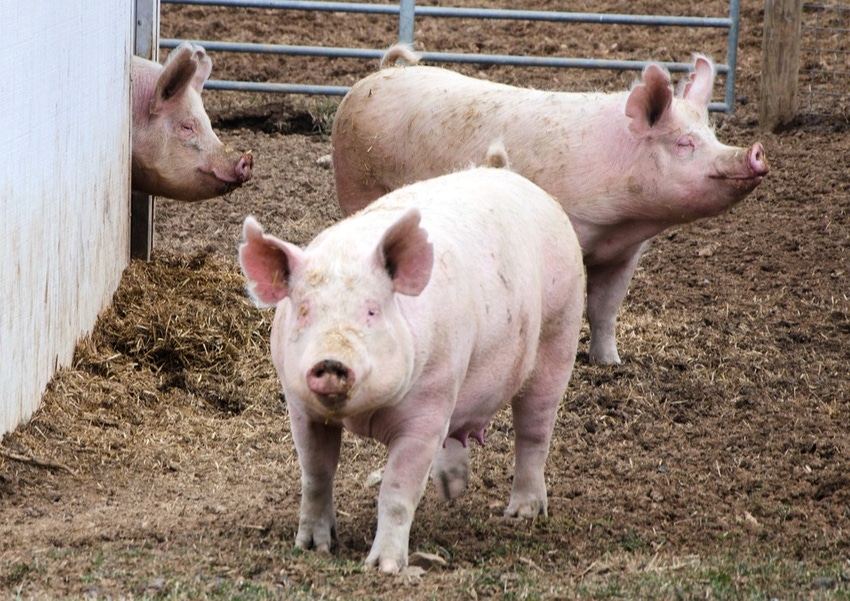Penn State to study SARS-CoV-2 potential to infect livestock
Results could help safeguard agricultural supply chain, livestock health, food safety and farm-community well-being.
September 10, 2020

A grant from the U.S. Department of Agriculture will enable researchers at The Pennsylvania State University to study the potential for SARS-CoV-2, the novel coronavirus that causes COVID-19, to infect and spread among livestock.
USDA's National Institute of Food & Agriculture, through its Agricultural & Food Research Initiative, awarded a nearly $1 million grant to a team led by Suresh Kuchipudi, a clinical professor of veterinary and biomedical sciences in the Penn State College of Agricultural Sciences.
The grant is part of a package of grants, valued at $14 million, that NIFA awarded to universities to research the effects of COVID-19 on agriculture.
The COVID-19 pandemic remains the most significant public health crisis in the modern era, Kuchipudi noted, and the unprecedented global spread of SARS-CoV-2 could pose a significant risk of exposure to livestock. During the pandemic, the new virus has continued to mutate, and there now are numerous genetic versions of SARS-CoV-2, he added.
"Coronaviruses are prone to mutations introduced by several mechanisms during viral replication," he said. "Cross-host exposures are an important step in the transference of viruses to new hosts, and host-switching events could happen as a result of increased contact between the viruses and these potential new hosts."
Kuchipudi, who also is the associate director of Penn State's Animal Diagnostic Laboratory, explained that in 2002, the first severe acute respiratory syndrome (SARS) virus infected fewer than 9,000 people but spilled over into pigs.
"That virus did not spread widely and was contained quickly, so there wasn’t a major impact to animal agriculture," he said. "However, it demonstrated the ability of SARS viruses to spill over into agricultural animals. Similar spillover events of SARS-CoV-2 into the agricultural system would be disastrous, because the U.S. livestock sector plays a critical role in providing a safe and reliable food supply as well as jobs and other economic benefits."
To investigate the susceptibility of livestock to SARS-CoV-2 and determine if the virus can adapt and spread among agricultural animals, researchers will employ a combination of experimental infection studies using cell cultures and animals, Penn State explained. These experiments will take place in a Bio-Safety Level 3 laboratory environment. The team also will use computer models to assess the chance for the virus to infect livestock species efficiently.
"In addition, we will develop diagnostic tests and use them to monitor the presence of antibodies to SARS-CoV-2 in livestock animals," Kuchipudi said. "We expect that our results will aid in the development of rapid decision-making strategies to safeguard the agricultural supply chain, the health and security of livestock, the safety of food and the well-being of the farming community."
Kuchipudi credited seed funding from Penn State's Huck Institutes of the Life Sciences for helping his lab quickly assemble a multidisciplinary team to establish methods and generate preliminary data, which aided in securing this competitive grant.
The Penn State team combines Kuchipudi's expertise in virology and molecular biology with expertise in veterinary microbiology from Meera Nair, assistant clinical professor of veterinary and biomedical sciences; in ecology and epidemiology from Kurt Vandergrift, associate research professor of biology, Eberly College of Science, and in computational modeling and chemical engineering from Costas Maranas, the Donald B. Broughton professor of chemical engineering, College of Engineering.
"This shows the excellent resources and expertise that Penn State can provide to respond rapidly and answer important research questions relating to emerging infectious disease threats," Kuchipudi said.
[Editor's Note: To date, SARS-CoV-2 has been confirmed in a variety of companion animals, farmed mink and zoo animals in the U.S. and Europe. There are also numerous coronaviruses, unrelated to SARS-CoV-2, that are known to infect farmed livestock and poultry.]
You May Also Like



